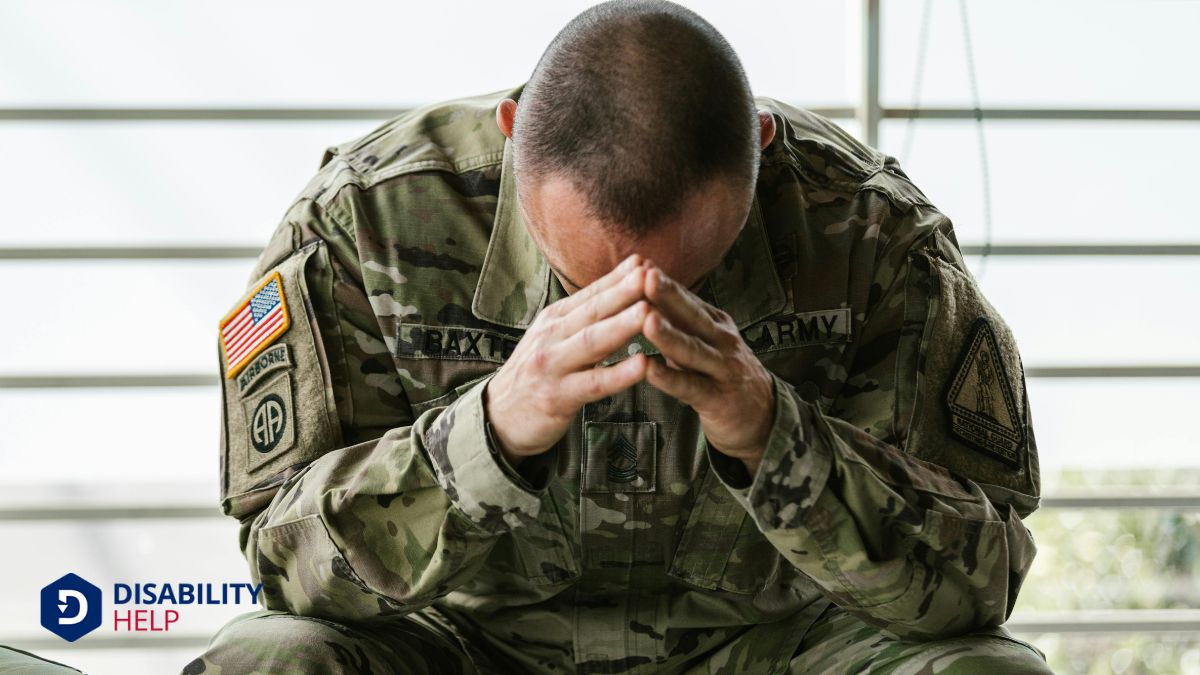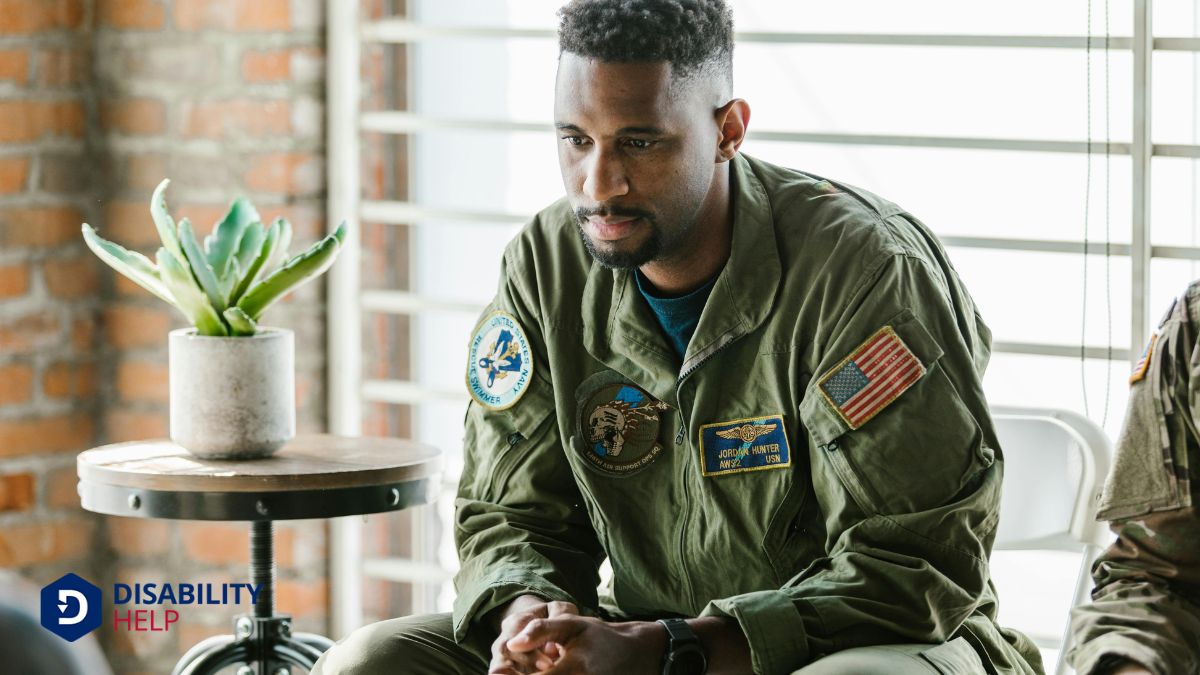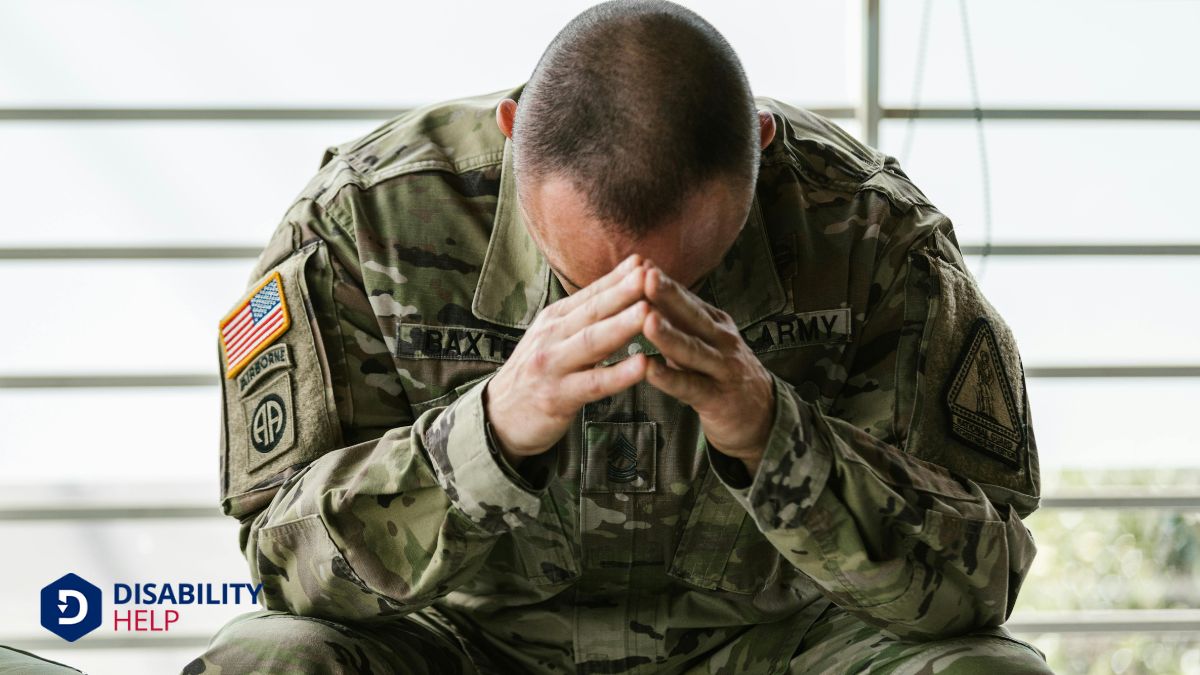When we think about what a veteran stands for, it goes beyond just military service. Veterans have committed their lives, showing resilienceThe ability of individuals with disabilities to cope with and adapt to challenges and adversity. and dedication, whether in combat or during peace. They come from all walks of life, carrying diverse experiences, and have demonstrated unwavering duty and sacrifice. Shifting to civilian life isn't always easy, and yet they bring invaluable skills like leadership and adaptability to the workforce. Veterans also contribute greatly to our communities, often volunteering and advocating for others. Supporting their mental health and honoring their service is key. Stay with us to discover more about their profound impact.
Key Takeaways
- A veteran is someone who has served in the military, including active duty, reserve duty, or the National Guard.
- Veterans exemplify sacrifice, commitment, and resilience through their service in diverse roles and environments.
- The term encompasses those who served during both wartime and peacetime from various backgrounds.
- Veterans face unique challenges transitioning to civilian life, requiring adjustments in identity and routine.
- They bring valuable skills like discipline, leadership, and adaptability to the civilian workforce and communities.
Defining the Term Veteran
When we discuss the term "veteran," grasping its complete meaning is vital. We frequently encounter this term in various contexts, but do we truly comprehend its significance? A veteran is an individual who's served in the military, which may include the Army, Navy, Air Force, Marines, or Coast Guard. They might've participated in combat operations or served during periods of peace. Veterans come from diverse ages, backgrounds, and experiences; however, they all share the commonality of serving their country.
As we reflect on this term, it's important to recognize that veterans encompass more than just those who've been involved in wars. This includes individuals who've fulfilled their service, whether through active duty, reserve duty, or the National Guard. This inclusive definition encapsulates the wide range of roles and duties undertaken by these individuals.
Appreciating the meaning of what a veteran represents is crucial in understanding their contributions and sacrifices. It isn't solely about acknowledging their past service but also valuing the expertise and experiences they bring to civilian life. By recognizing these aspects, we can enhance our support and interaction with veterans within our communities and everyday interactions.
Historical Context and Evolution

Understanding the historical context and evolution of the term "veteran" enriches our appreciation of its significance today. The word traces its roots back to ancient Rome, where "veteranus" described soldiers who'd served long and gained experience. These seasoned fighters earned respect and recognition, setting a precedent for how we view veterans today.
As societies evolved, so did the concept. During the Middle Ages, veterans were often knights who'd served in various campaigns, their service a reflection of their loyalty and bravery. The notion that veterans embody experience and sacrifice grew stronger, embedding itself deeper in the cultural consciousness.
In the modern era, especially post-World War I and II, the term expanded further. It began to include all service members who completed their military duty, reflecting changing attitudes towards military service. Our understanding of veterans now encompasses a broader spectrum of individuals, acknowledging diverse roles beyond combat, such as medics and engineers.
The Sacrifice and Commitment
As we explore what makes a veteran truly remarkable, we see valor in every mission they undertake, showing courage when others might hesitate.
Their dedication goes beyond the call of duty, reflecting a commitment that often means putting their lives on the line.
Through adversity, they endure with resilience, standingThe legal right to bring a lawsuit, which requires that the individual bringing the suit has a direc... firm when faced with the toughest challenges.
Valor in Every Mission
Valor shines through in every mission we undertake, reflecting a profound level of sacrifice and commitment. As veterans, we've faced situations that test our courage and determination. Each mission demands more than just physical strength—it requires mental resilience and an unwavering sense of duty. We often find ourselves in challenging environments where every decision can make a difference between life and death. Our commitment to the mission and to each other is what drives us forward.
We understand that valor isn't just a word; it's an action, a way of life. It's about standing firm when the odds are against us, ensuring that we fulfill our responsibilities to protect and serve. We've seen and experienced moments where fear could easily take hold, but instead, we leaned into our training and the support of our fellow service members.
The sacrifices we make aren't just for ourselves; they're for a greater cause. Our commitment extends beyond individual desires, embodying a collective dedication to the mission and our country. We carry the weight of our choices, knowing that our valorous actions contribute to something far larger than ourselves. Through this, we honor the very essence of being a veteran.
Dedication Beyond the Call
In the heart of our service, through both triumphs and trials, lies a dedication that extends beyond the call of duty. We commit to something larger than ourselves, a mission that demands more than just showing up. This commitment is woven into every task we undertake, every moment we stand ready, and every time we push past our limits.
It's about putting the needs of others before our own, making sacrifices that many mightn't even imagine. We're not just doing a job; we're fulfilling a promise to protect, serve, and maintain the safety of our nation and its values.
Our dedication is evident in the countless hours of training, the long deployments away from family, and the willingness to face uncertainty head-on. We learn to adaptA grassroots disability rights organization in the U.S. that focuses on promoting community-based se..., to persevere, and to remain steadfast in our purpose. Each of us carries the weight of responsibility, knowing that our choices can impact lives.
We endeavor to uphold a standard of excellence that honors those who came before us. This commitment doesn't end with the uniform; it stays with us, a lifelong pledge to lead and serve with integrity. Our dedication extends beyond duty—it defines the essence of being a veteran.
Endurance Through Adversity

Facing adversity head-on is a hallmark of our service, demanding both sacrifice and unwavering commitment. We've all faced moments that tested our limits, both physically and mentally. In those times, our endurance through adversity wasn't just a personal challenge; it was a collective journey shared with our comrades. We held each other up, finding strength in unity. Our commitment didn't falter, even when the path seemed insurmountable.
Endurance isn't just about surviving; it's about adapting and thriving despite the odds. We've learned to navigate uncertainty, finding solutions where others see obstacles. This relentless perseverance stems from a deep-seated dedication to our mission and each other. We sacrificed time, comfort, and sometimes our own desires to secure success and safety for all. This sacrifice wasn't made lightly; it was a choice driven by a sense of duty and honor.
As veterans, our experiences have forged us into resilient individuals. We've faced adversity, and we've come out stronger and more determined. This shared journey of sacrifice and commitment isn't just a part of our past; it shapes who we are today. Together, we continue to embody endurance through adversity, setting an example for others.
Transition to Civilian Life
Many of us may not fully grasp the complexities involved when veterans shift to civilian life. The change isn't just a shift in job or location; it's a profound adjustment in identity and daily routine. After years of structured service, veterans suddenly face a world where roles and expectations are less defined.
This change can be challenging, as the familiar camaraderie and purpose of military life give way to a more individualistic civilian environment.
We should acknowledge the emotional and psychological challenges veterans might encounter. Many experience feelings of isolation or struggle to find their place in a society that may not fully understand their experiences. Adjusting to a new pace of life, where decisions are less structured, can be overwhelming.
In addition, the support systems veterans relied on in the military may no longer be as readily accessible.
It's essential we offer empathyThe ability to understand and share the feelings of another, particularly important in understanding... and practical support during this period. By fostering communities that welcome and support veterans, we can ease their adjustment. Let's work towards creating spaces where veterans feel valued and understood, ensuring they know they're not alone in transitioning through this significant life change.
Veterans in the Workforce
As veterans enter the workforce, they bring a wealth of skills and experiences that can greatly benefit any organization. Their military background equips them with discipline, leadership, and a strong work ethic, qualities that many employers value. Veterans have honed critical thinking and problem-solving abilities under high-pressure situations, making them adaptable and resilient team members.
We should recognize that veterans aren't just employees but also valuable assets with unique perspectives. Their experiences in diverse environments foster cultural awareness and teamwork. This diversityThe inclusion of individuals from a wide range of backgrounds, including people with disabilities. can drive innovation and improve team dynamics, leading to more effective problem-solving and decision-making.
Moreover, veterans often excel in roles that require leadership and responsibility. They understand the importance of mission-focused work and can motivate and guide teams toward achieving shared goals. Employers who invest in hiring veterans not only gain skilled workers but also contribute to a supportive and inclusive workplace culture.
Let's not overlook the potential challenges veterans might face, such as translating military skills into civilian contexts. By offering tailored support and training, we can help them transition smoothly and reveal their full potential, benefiting both the veterans and the organizations they join.
Community Contributions
While veterans bring immense value to the workforce, their contributions extend well beyond the confines of traditional employment. We often find that they enrich our communities in countless ways. Veterans possess a unique blend of skills and experiences that benefit us all. They've honed leadership and teamwork abilities, which they apply to community projects, volunteer efforts, and local initiatives.
Whether organizing charity events, mentoring youth, or supporting local schools, veterans are deeply involved in community life.
Their sense of duty and commitment often translates into civic engagementThe participation of people with disabilities in the political process, including voting, advocacy, .... Many veterans take on roles in local government or nonprofit organizations, advocating for community needs and improvements. They understand the importance of service, and they continue to serve, even without a uniform.
Moreover, veterans bring a wealth of knowledge and perspective that fosters understanding and unity within our communities. Their diverse experiences encourage inclusivity, often bridging gaps between different groups.
When we work together with veterans, we strengthen our communities and build lasting connections. By acknowledging and supporting their efforts, we not only honor their service but also enhance the collective well-being of our neighborhoods. Let's recognize their invaluable contributions and collaborate for a brighter future.
Addressing Mental Health Challenges

In light of their priceless contributions, it's crucial we address the mental health challenges veterans face after their service. Many veterans return home carrying unseen scars from their experiences, leading to conditions like PTSD, depressionA mental health condition marked by persistent feelings of sadness and loss of interest., and anxiety. These challenges can impact their ability to shift back into civilian life, affecting personal relationships and career opportunities. We must recognize these struggles and work towards providing the necessary support.
To truly help, we need to foster open conversations about mental health. Encouraging veterans to share their stories can reduce stigmaThe negative attitudes and discrimination faced by individuals with disabilities due to societal ste... and create a supportive environment where they feel comfortable seeking help.
We should advocate for accessible mental health servicesProfessional services that support individuals in managing mental health conditions, such as therapy... tailored specifically for veterans. This includes counselingProfessional guidance to help individuals cope with emotional, mental, or social challenges, particu..., therapy, and support groups that understand the unique nature of military experiences.
Moreover, raising awareness among family members and the community is vital. They play a crucial role in recognizing early signs of mental distress and guiding veterans to appropriate resources. By joining forces and using the resources at our disposal, we can ensure our veterans receive the mental health care they deserve.
Together, we can create a society that values their well-being and acknowledges the sacrifices they've made.
Honoring Veterans in Society
Recognizing the priceless sacrifices veterans have made, it's crucial that we honor them in meaningful ways within our society. We must make certain that their dedication isn't forgotten once their service ends. Honoring veterans goes beyond parades and ceremonies; it involves integrating appreciation into our daily lives and making sure they've access to the support they deserve.
We can start by advocating for all-encompassing healthcare and mental health services tailored to their unique needs. Veterans often face challenges like PTSD and physical injuries, requiring our active support in accessing effective care.
We should also push for educational opportunities and job programs that help them shift smoothly back into civilian life, recognizing their skills and experiences.
Moreover, let's promote understanding and respect through education, teaching younger generations about the contributions and sacrifices veterans have made. We can participate in community events that celebrate veterans, making sure they feel valued and remembered.
Simple gestures, like taking the time to listen to their stories or offering help when needed, can make a significant difference. Together, by committing to these actions, we can create a society that truly honors and respects the veterans who've served us all.
Conclusion
As we've explored, veterans embody sacrifice, commitment, and resilience. They've shaped history and continue to enrich our communities. Adapting to civilian life isn't always easy, but their contributions to the workforce and society are invaluable. We must address the mental health challenges they face and honor their service and sacrifices. By supporting veterans, we not only recognize their past efforts but also empower them to continue making a difference in our world. Let's work together to uphold their legacy.






